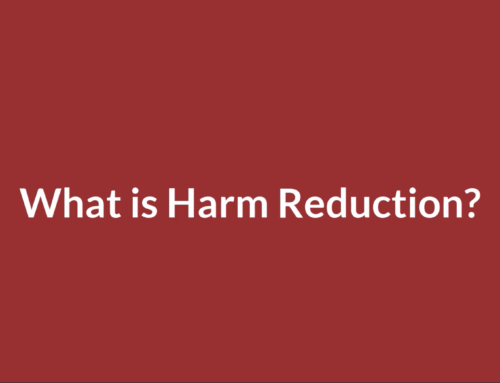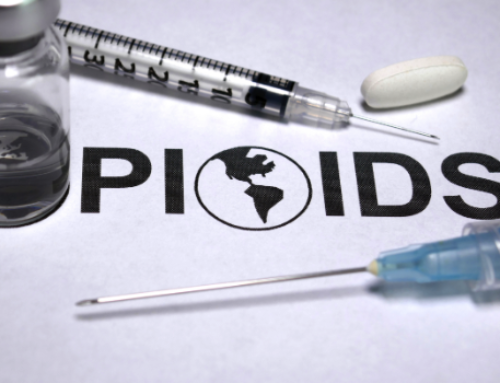
If you or a loved one is struggling with meth addiction, you’re not alone. Currently, 1.6 million people abuse meth in the United States. Worldwide, meth is the most commonly abused hard drug.
Fortunately, meth addiction recovery is possible with the right support. By taking the brave step to pursue recovery, meth addiction doesn’t need to rule your life anymore.
To learn about the steps to overcoming meth addiction, keep reading.
What is Meth?
Methamphetamine, commonly known as “meth,” is a highly addictive stimulant drug. It causes the brain to release a rush of dopamine, the neurotransmitter that regulates feelings of pleasure and satisfaction.
Once ingested, meth causes you to experience the following effects:
- Happiness
- Euphoria
- A sense of well-being
- Confidence
- Motivation
- A surge of energy
In addition to these pleasurable effects, meth use can also result in:
- Loss of appetite
- Insomnia
- Aggression
- Agitation
- Paranoia
- Hallucinations
- “Meth bugs” (the feeling of bugs crawling under the skin)
The Impacts of Meth Addiction
Meth addiction can devastate a person’s life, due to:
- Relationship and career problems – As with any addiction, meth addiction can wreak havoc on your relationships with loved ones and your career.
- Legal problems – Meth is a Schedule II substance. If caught with it, you could face incarceration and other legal issues.
- Health problems – Meth use causes a host of serious health issues, including:
-
- Significant weight loss – Since meth suppresses appetite, it may cause you to lose a lot of weight and become malnourished.
-
- Skin infections – Due to the irritating sensation of “meth bugs,” many meth users pick at their skin. This can cause skin sores and dangerous infections.
-
- Vein damage – Meth can either be injected or snorted. If you inject it, you could damage your veins. If you use a dirty needle unknowingly, you could also develop HIV/AIDS or Hepatitis.
-
- Central nervous system damage – Meth is a strong stimulant, so it can cause significant damage to your heart and central nervous system, increasing your risk of seizure, heart attack, stroke, overdose, and death.
- Withdrawal – Over time, meth use can damage your brain’s dopamine
 receptors. Without continued use of the substance, you may start experiencing distressing withdrawal symptoms, including:
receptors. Without continued use of the substance, you may start experiencing distressing withdrawal symptoms, including: -
- Depression
- Anxiety
- Insomnia
- Fatigue
In the face of these events, meth addiction can often cause a feeling of helplessness about recovery and hopelessness about the future. However, there is hope.
Steps to Overcoming Meth Addiction
The path to meth addiction recovery isn’t easy, but it’s worth it. Overcoming crystal meth addiction empowers you to get your life back on track.
Meth addiction is treated with a combination of medication and therapy.
Here are the steps involved in treatment:
1. Detox
The first few weeks of recovery are the hardest. That’s because detoxing from meth can cause severe withdrawal symptoms. The longer you’ve been dependent on meth, the more intense your withdrawal symptoms can be.
Fortunately, a medical detox program eases the symptoms of withdrawal and makes it much easier to get through the process. Some patients are given naltrexone, a drug that’s been shown to significantly reduce meth cravings. With the help of medication and close medical supervision, you can get off of meth safely and effectively.
Roughly 40% of people who seek treatment for meth addiction say that they’ve struggled with anxiety. During the detox program, you can also seek treatment for any underlying anxiety or depression you’re experiencing.
2. Counseling
After detox is complete, the next step of recovery is attending therapy. Many people develop an addiction in an attempt to “self-medicate” and numb their emotional pain.
Evidence-based therapy can help you improve your mental and emotional well-being. During your sessions, you’ll learn how to:
- Understand your emotions
- Process past traumas
- Develop healthy coping mechanisms
If you have an underlying mental illness, it can also be treated at this time with the proper medications and therapy.
3. Ongoing Support
After adjusting to life without meth, staying sober is a lifelong process. To reduce the potential for relapse, you need a strong support system.
Your treatment center can match you with:

- Support groups – Support groups offer recovering addicts a sense of community and support.
- Case management – Case managers help you work towards your new goals, whether that’s finding gainful employment or moving into affordable housing after recovery.
- Counseling – Counseling is a powerful tool to support your long-lasting recovery. As new emotional challenges come your way, your counselor can help you through them. In turn, you’ll avoid falling back into old patterns.
Overcome Meth Addiction Once and For All
Beating a meth addiction is possible when you have the right support. If you or a loved one is suffering from this addiction, the Renaissance Treatment Center can help.
Based in San Diego, this treatment center has helped over 1,000 people overcome their addictions and improve their lives.
To learn more about this treatment center, reach out to a VOASW member today.


